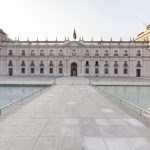- The draft of the new Constitution establishes duties of the State in relation to various elements of the environment.
- This draft establishes that Chile is an oceanic country. It also incorporates the “Maritorio” (“maritime territory”) as a new legal concept.
- This draft establishes the right to a vital minimum of affordable and secured energy.
The proposal by the Constitutional Convention is innovative as it incorporates a series of duties of the State in relation to diverse elements of the environment. Let us see some of them.
Chile is an oceanic country
The draft of the new Constitution establishes that Chile is an oceanic country. This is related to the imposition of certain duties on the State, such as:
✓ Conserve, preserve and care for continental, insular and Antarctic marine and coastal ecosystems. It is provided that a law must establish their “spatial planning and integrated management, through differentiated, autonomous and decentralized treatment, as appropriate, based on territorial equity and justice“.
✓ To protect marine and marine-coastal spaces and ecosystems, promoting the various vocations and uses associated with them, and ensuring, in any case, their preservation, conservation and ecological restoration.
✓ Establish a Ports National Policy.
The “Maritorio” (“maritime territory”)
The draft recognizes a new legal concept: the “Maritorio” (“maritime territory”). This “Maritorio”, like the “land territory”, will have a specific regulation that recognises its own characteristics in the social, cultural, environmental and economic fields. However, the draft’s wording is not clear in defining which will be the limits or borders of the “Maritorio“, nor what will be the scope and effects that this specific regulation will have to be implemented with respect to the activities carried out within its limits or borders.
It also states that a law will establish the administrative division of the “Maritorio” and the basic principles that should inform the laws and regulations that materialize its institutionalization.
New constitutional right in relation to energy
The draft of the new Constitution recognizes that all people have the right to a vital minimum of affordable and secured energy.
The draft establishes as specific duties of the State the following ones: (i) to guarantee equitable access to energy that allows people to satisfy their needs, ensuring the continuity of energy services; (ii) to promote and protect cooperative energy companies and the self-consumption of energy, and (iii) to regulate and promote a distributed, decentralized and diversified energy matrix, based on renewable energies with a low environmental impact.
The draft states that the energy infrastructure will be considered of “public interest”, without distinction as to the type of infrastructure or its characteristics. Given that there are currently various types of private energy infrastructure, some of which are assets associated with public utilities, it is unclear what effect would have, at the constitutional level, declaring them to be of “public interest”.
Wetlands, native forests, soils and protected areas
The draft states that, with respect to wetlands, native forests and soils, the State must ensure their integrity, functions, processes and water connectivity.
In addition, it provides that the State must guarantee the preservation, restoration and conservation of “natural spaces” through a national system of protected areas, which must be technical, unique and integral. In this context, it also establishes the State’s duty to guarantee the participation of local communities and territorial entities.
Glaciers and Antarctica
The draft includes additional duties of the State to (i) ensure the protection of glaciers and their environment, including frozen soils and their ecosystem functions, and (ii) conserve, protect and care for Antarctica through a knowledge-based policy oriented towards scientific research, international collaboration and peace.
Duties of the State and the right to carry out economic activities
Although the draft innovates by establishing these duties of the State, referring to the care of the environment and the preservation of natural resources at a constitutional level, it incorporates a series of elements or concepts whose scope and limits are diffuse, and which could be the object of diverse interpretations.
It is worth asking how these duties of the State could be reconciled with the exercise of other rights established in the constitutional text, such as the freedom to undertake and develop economic activities. For example, how could the exercise of the latter right be affected when it is intended to develop economic activities that could affect the integrity, functions, processes or connectivity of protected areas or soils?
This is relevant, since the draft establishes that the exercise of this right must be compatible with the protection of nature, and that both the content and the limits of this right will be determined by law. If the draft is approved, and as long as the laws regulating these matters are not passed, it is not clear how a precise weighing of the duties of the State and the rights of individuals could be carried out.
Contacts




